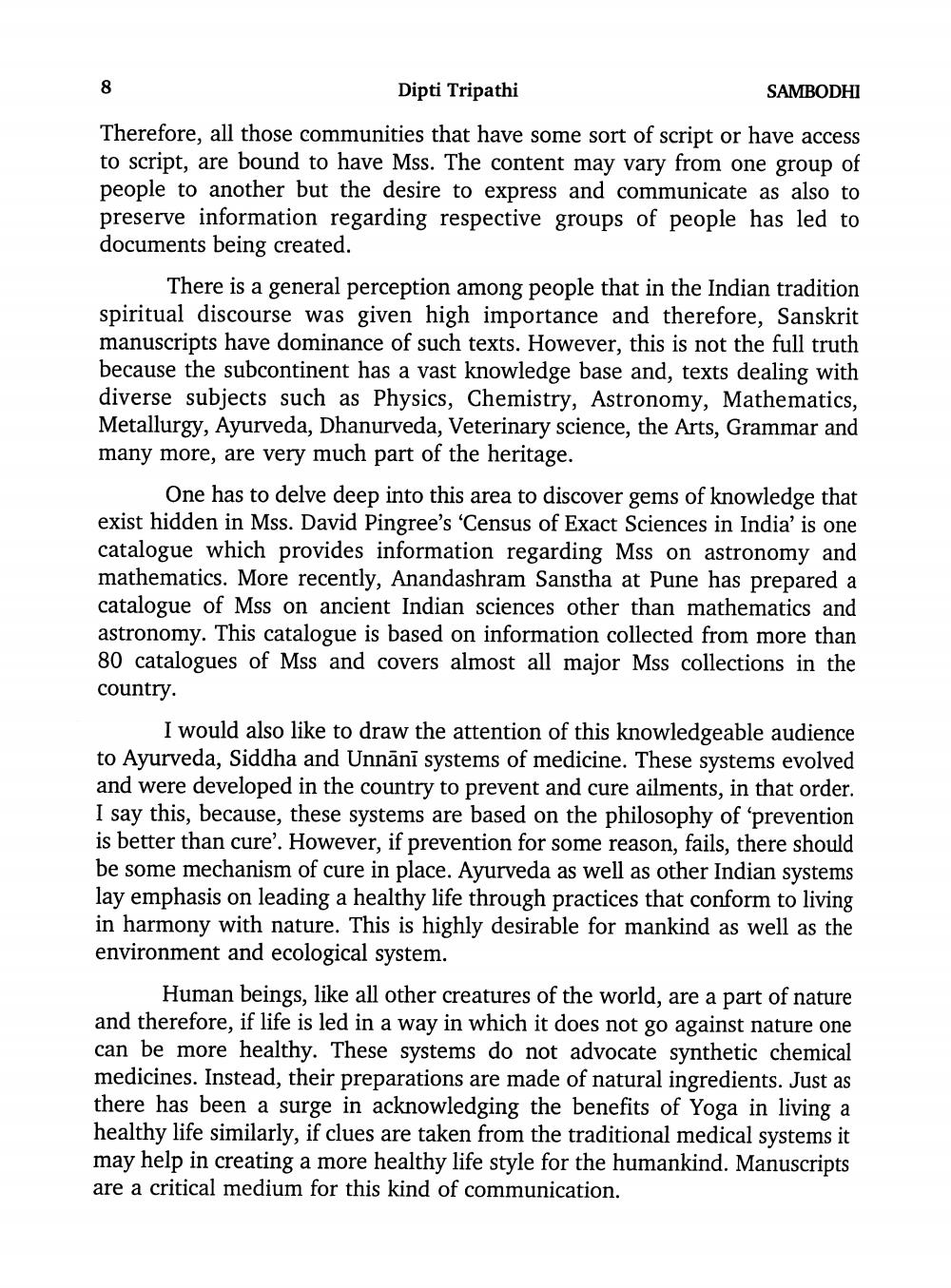________________
Dipti Tripathi
SAMBODHI
Therefore, all those communities that have some sort of script or have access to script, are bound to have Mss. The content may vary from one group of people to another but the desire to express and communicate as also to preserve information regarding respective groups of people has led to documents being created.
There is a general perception among people that in the Indian tradition spiritual discourse was given high importance and therefore, Sanskrit manuscripts have dominance of such texts. However, this is not the full truth because the subcontinent has a vast knowledge base and, texts dealing with diverse subjects such as Physics, Chemistry, Astronomy, Mathematics, Metallurgy, Ayurveda, Dhanurveda, Veterinary science, the Arts, Grammar and many more, are very much part of the heritage.
One has to delve deep into this area to discover gems of knowledge that exist hidden in Mss. David Pingree's 'Census of Exact Sciences in India' is one catalogue which provides information regarding Mss on astronomy and mathematics. More recently, Anandashram Sanstha at Pune has prepared a catalogue of Mss on ancient Indian sciences other than mathematics and astronomy. This catalogue is based on information collected from more than 80 catalogues of Mss and covers almost all major Mss collections in the country.
I would also like to draw the attention of this knowledgeable audience to Ayurveda, Siddha and Unnānī systems of medicine. These systems evolved and were developed in the country to prevent and cure ailments, in that order. I say this, because, these systems are based on the philosophy of 'prevention is better than cure'. However, if prevention for some reason, fails, there should be some mechanism of cure in place. Ayurveda as well as other Indian systems lay emphasis on leading a healthy life through practices that conform to living in harmony with nature. This is highly desirable for mankind as well as the environment and ecological system.
Human beings, like all other creatures of the world, are a part of nature and therefore, if life is led in a way in which it does not go against nature one can be more healthy. These systems do not advocate synthetic chemical medicines. Instead, their preparations are made of natural ingredients. Just as there has been a surge in acknowledging the benefits of Yoga in living a healthy life similarly, if clues are taken from the traditional medical systems it may help in creating a more healthy life style for the humankind. Manuscripts are a critical medium for this kind of communication.




